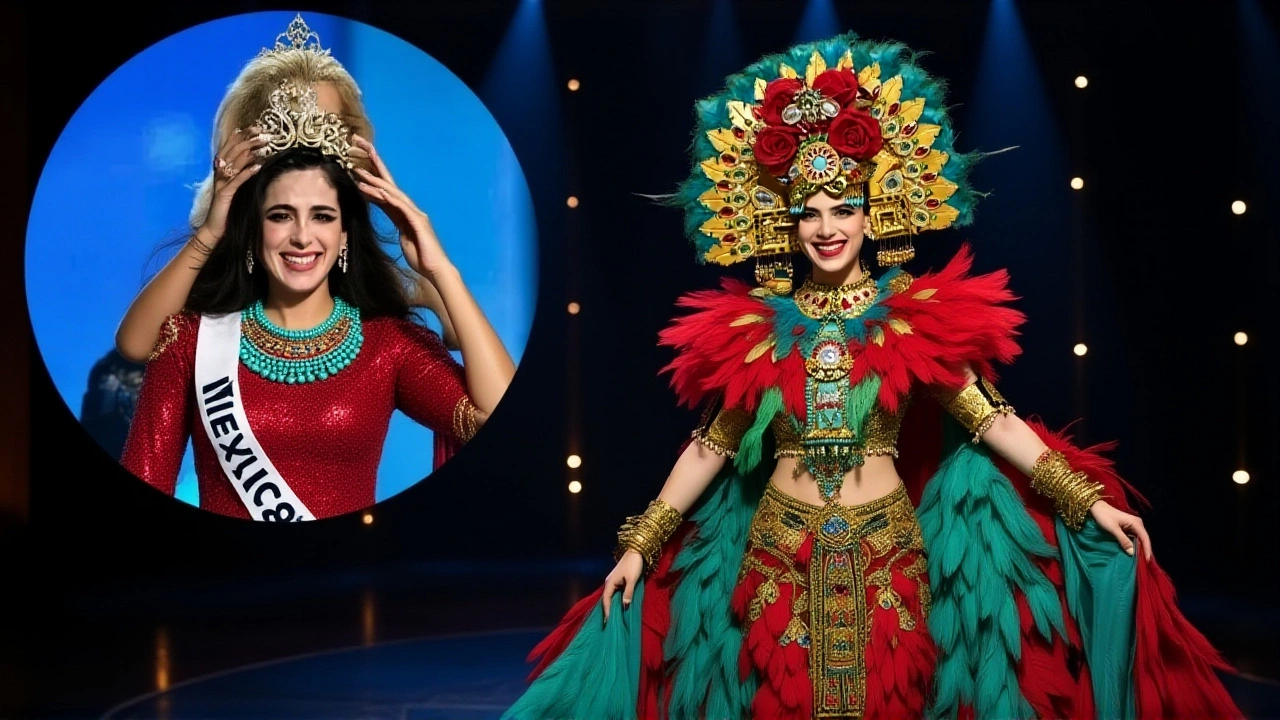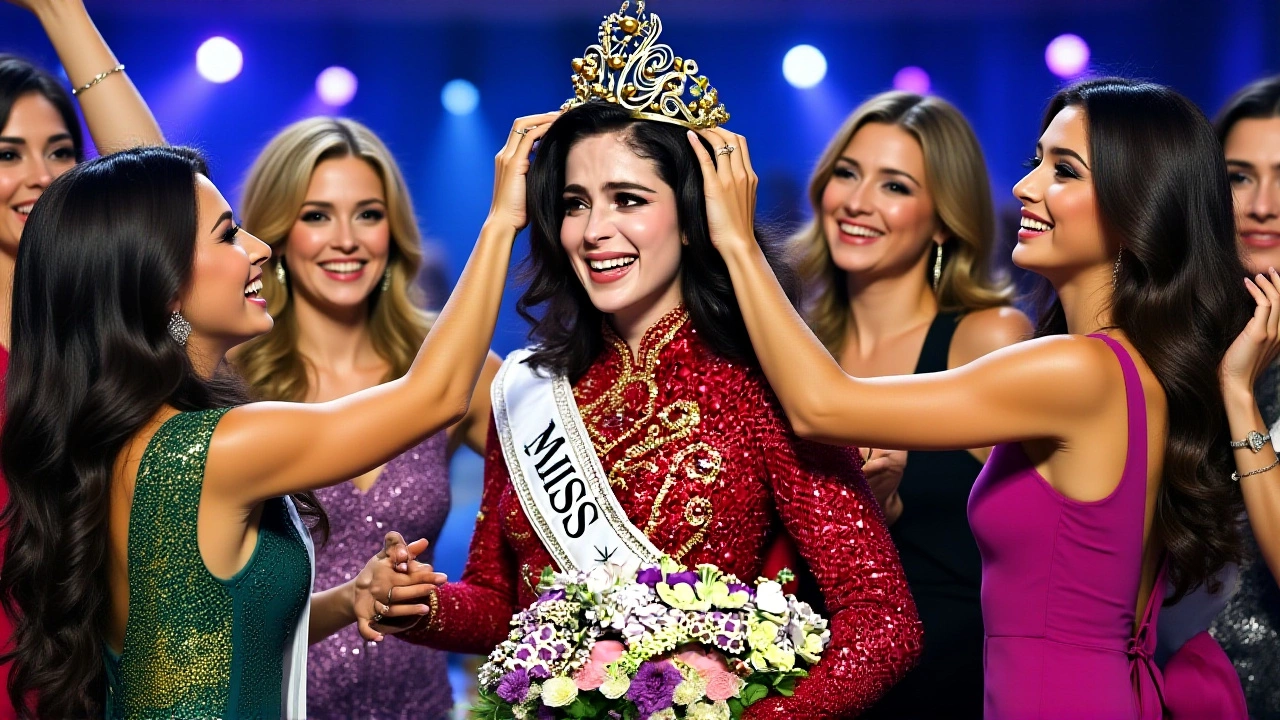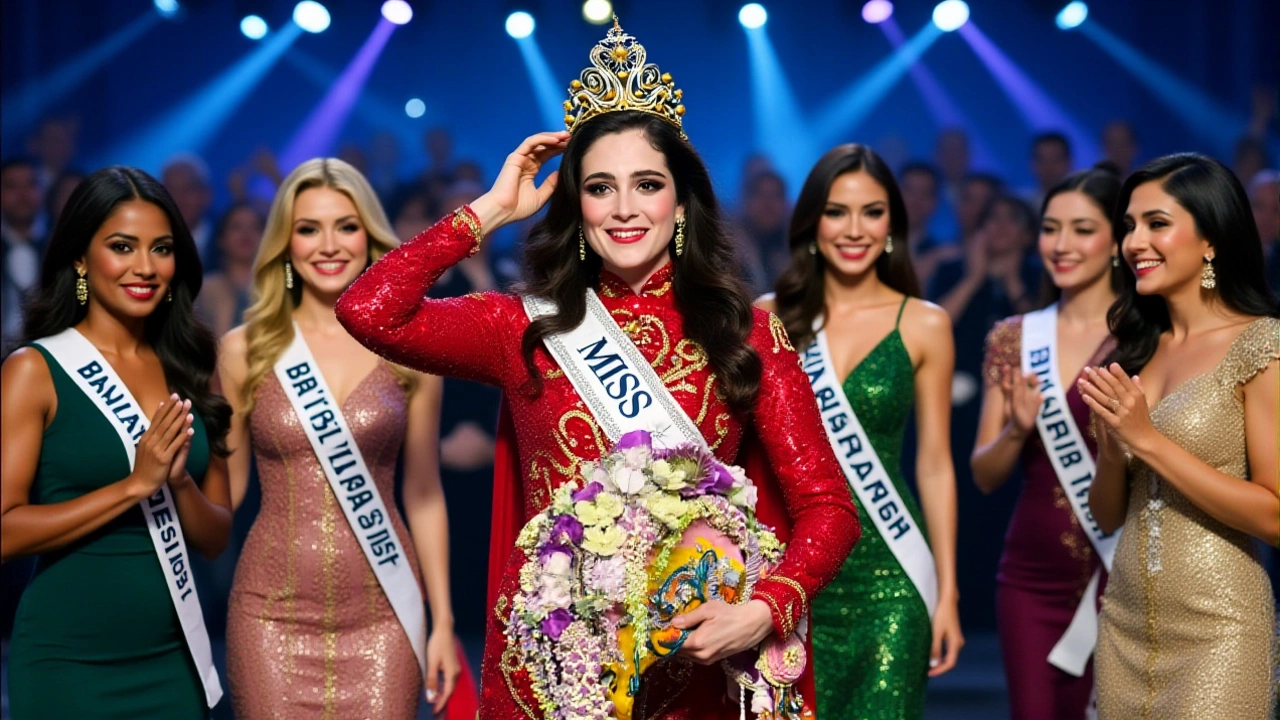When Fátima Bosch Fernández stepped onto the stage at the Impact Arena in Bangkok on November 21, 2025, at 8:45 PM local time, she didn’t just win a crown—she survived a storm. The 25-year-old from Tabasco, Mexico, was declared Miss Universe 2025—the 74th winner in the pageant’s 73-year history—amid unprecedented chaos: two jury members had quit, accusing organizers of bias, and Bosch Fernández herself had walked out of a preliminary event after being publicly criticized by an unnamed official. This wasn’t just another coronation. It was a reckoning.
The Moment That Shook the Pageant World
The final night was electric. 500 million viewers tuned in globally, according to preliminary Nielsen data cited by Portal do Holanda. Bosch Fernández’s Q&A response—calm, sharp, and deeply personal—sealed her victory. "This crown represents every girl who faced adversity but never surrendered her dreams," she said, voice steady, eyes unwavering. The crowd erupted. But behind the glitter, the cracks were widening. Just days before, during a preliminary event in Bangkok, an official allegedly singled out Bosch Fernández in front of 80 contestants, threatening to disqualify anyone who supported her. She didn’t argue. She left. No announcement. No press release. Just silence. Then, on November 15, two jurors resigned. One, described by Protothema as a "veteran fashion industry executive," told organizers: "The process was rigged." The other, a former international pageant director, cited "systemic disrespect" toward contestants from non-Western nations. The judging panel, originally 15 strong from 12 countries, was reduced to 13. Voting remained weighted: 60% audience, 40% judges. Yet the damage was done. Trust evaporated.Who Is Fátima Bosch Fernández?
Born and raised in Villahermosa, Tabasco, Bosch Fernández grew up in economic hardship. Her father left when she was seven. Her mother worked three jobs. She didn’t own a pair of new shoes until she was 16. Yet she studied relentlessly, earned a scholarship to study communications at the National Autonomous University of Mexico, and began modeling part-time to help pay for her textbooks. Her social media presence—1.2 million Instagram followers, nearly half a million on Facebook—wasn’t built on filters. It was built on honesty. She posted about anxiety, about being told she "wasn’t pageant material" because of her dark skin and Indigenous features. When she entered Miss Universe, she didn’t hide her roots. She amplified them. And the world noticed.The Corporate Divide Behind the Scenes
The Miss Universe Organization, founded in Long Island in 1952, is co-owned by two giants: Thailand’s JKN Global Group and Mexico’s TelevisaUnivision. Their clash wasn’t subtle. JKN, led by CEO Adul Sangobborirak, favored polished, tightly controlled productions. TelevisaUnivision, under CEO Wade Davis, pushed for authenticity, cultural representation, and emotional storytelling. The tension boiled over in Bangkok. Staff from each side reportedly argued over contestant scheduling, lighting choices, even the wording of interview questions. "It wasn’t about beauty," one insider told Protothema. "It was about who gets to define it."
What Happened to the Jury?
The resignations weren’t anonymous whispers. They were formal letters, delivered to the Miss Universe Organization on November 16. One juror, a former Miss World judge from South Africa, later confirmed to a journalist that Bosch Fernández’s elimination was "pre-determined" until public outcry forced a review. The other, a London-based stylist who had judged 11 international pageants, said she could no longer "lend credibility to a charade." The organization’s CEO, Anne Jakrajutatip, responded on November 20 with a statement: "We have implemented enhanced protocols to ensure fairness and respect for all participants." But the damage was already viral. #MissUniverseRigged trended in 42 countries.Why This Matters Beyond the Crown
Bosch Fernández’s win is Mexico’s third in Miss Universe history—after Lupita Jones in 1991 and Ximena Navarrete in 2010. But this time, it’s different. She didn’t just represent a country. She represented a movement: that beauty isn’t curated by committees. It’s claimed by those who’ve fought for it. Her victory also exposes a deeper truth: global entertainment is no longer just about spectacle. It’s about power. Who controls the narrative? Who gets to judge? And what happens when the judges walk away? The Miss Universe 2025 finale may have ended. But the reckoning has just begun.
What Comes Next?
Bosch Fernández’s reign started immediately. Her first official act: a 24-hour "reign initiation" at the Grand Hyatt Erawan Bangkok. On November 22, she met with the Mexican Ambassador in Bangkok at 10:00 AM. The next day, she paraded down Sukhumvit Road at 2:00 PM, waving to crowds that chanted her name—not just as a winner, but as a symbol. Meanwhile, the Miss Universe Organization has promised an internal review. No timeline. No transparency. That’s the real question now: will they fix the system… or just rebrand it?Frequently Asked Questions
How did Fátima Bosch Fernández’s background influence her win?
Bosch Fernández’s upbringing in economic hardship in Villahermosa, Tabasco, shaped her authenticity on stage. Unlike many contestants with polished, privileged backgrounds, she spoke openly about her mother’s three jobs and her own struggles with self-worth. This resonated deeply with global audiences, especially in Latin America and Southeast Asia, where economic inequality is widespread. Her Q&A response about resilience became the most-shared moment of the night, directly tying her personal story to the pageant’s evolving values.
Why did the jury members resign?
Two jurors resigned citing a "rigged" judging process and systemic disrespect toward contestants from non-Western countries. One, a veteran fashion executive, said she could no longer "lend credibility to a charade." Their resignations came after Bosch Fernández was publicly criticized by an official during a preliminary event, triggering fears of favoritism. Their departure—unprecedented in the pageant’s 74-year history—forced the organization to reduce its judging panel from 15 to 13 members, undermining public confidence in the final result.
What role did JKN Global Group and TelevisaUnivision play in the controversy?
As co-owners of the Miss Universe Organization, JKN Global Group (Thailand) and TelevisaUnivision (Mexico) clashed over production control and contestant treatment. JKN favored rigid, polished formats; TelevisaUnivision pushed for emotional storytelling and cultural representation. These tensions spilled into contestant interactions, scheduling disputes, and judging criteria—fueling perceptions of bias. The resignations and walkout were symptoms of a deeper cultural divide within the organization’s leadership.
Is this the first time judging controversy has affected Miss Universe?
No. In 2012, the winner was briefly dethroned after a judge admitted to being influenced by personal bias. In 2018, the Philippines’ Catriona Gray faced accusations of favoritism after winning in Thailand. But never before have two jurors resigned mid-competition, nor has a contestant walked out after public humiliation by staff. The 2025 event marks the most severe internal breakdown in the pageant’s history, exposing systemic flaws beyond individual mistakes.
What’s next for the Miss Universe Organization?
CEO Anne Jakrajutatip promised "enhanced protocols," but offered no details or timeline. Independent observers are calling for an external audit, transparency in judging criteria, and a public apology to Bosch Fernández and the resigned jurors. Without structural reform, the organization risks losing credibility with younger audiences who value authenticity over polish. The 2026 pageant, set for Mexico City, may be its make-or-break moment.
How did global audiences react to Bosch Fernández’s win?
Social media exploded in support. Hashtags like #FátimaWins and #RealBeauty trended across Latin America, Africa, and Southeast Asia. In Mexico, her victory sparked national celebrations, with streets in Villahermosa decorated in green, white, and red. Even critics of pageants acknowledged her impact: "She didn’t just win a crown—she reclaimed dignity for women who’ve been told they’re not enough," wrote a columnist in El País. The 500 million viewers didn’t just watch a contest—they witnessed a cultural shift.
